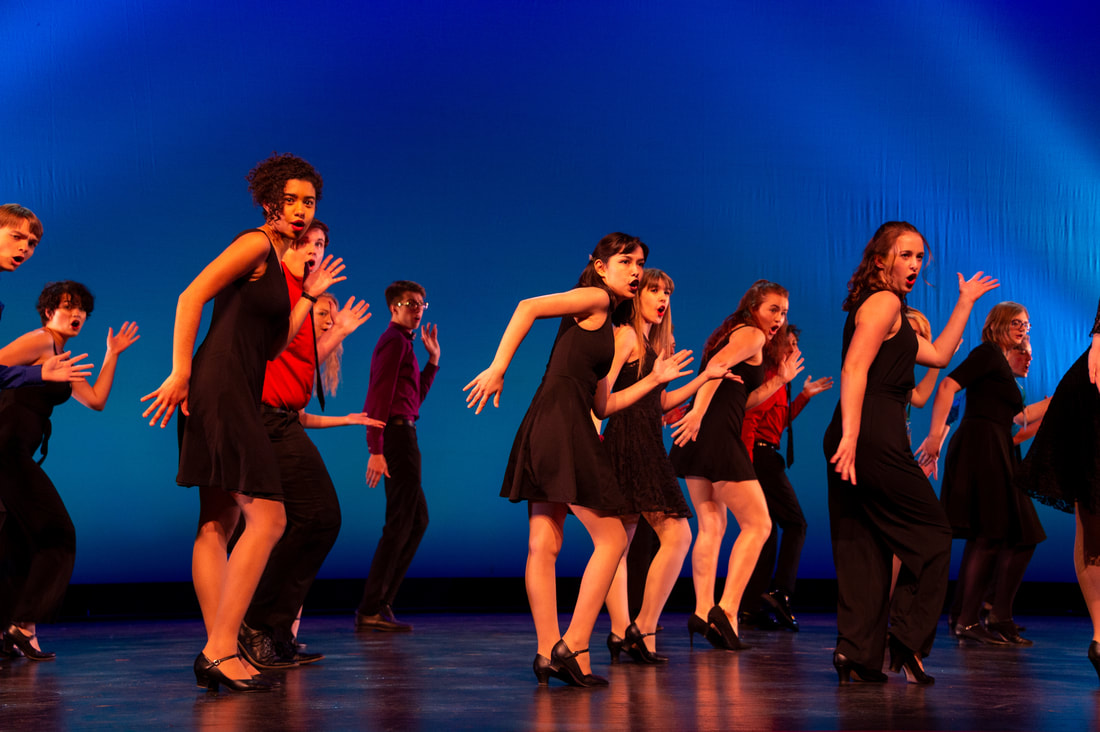How we adjudicate
We believe that each dramatic story is about a day unlike any other and that the characters in that story are on a journey of discovery, about themselves and their world, that will put them in a new place when the story is complete. The more the acting, singing, and dancing support those notions, the higher each performer and each production will score with us.
Each adjudicator will evaluate the production as a whole, the contributions of the director and the merits of the ensemble/chorus. Additionally, adjudicators will evaluate performances by all individuals nominated for Best Actor and Best Actress. Adjudicators will also score students nominated for Best Supporting Actor and Best Supporting Actress.
|
Individual
81-100: Masterful storytelling; fully realized, emotion-driven character; solid musical theatre skills 61-80: Good storyteller; nearing mastery of some/all musical theatre skills; believeable performance. This student might be comfortable at the Jimmy Awards, especially at the higher end of this range. 41-60: Solid student performance; exhibits some strengths in musical theatre skills, including storytelling 21-40: Developing abilities; demonstrates grasp of understanding of some skills; shows moments of future promise 1-20: Novice performer; may exhibit an ability for some skills; untrained, inexperienced; offers few if any emotion driven moments |
|
Production
81-100: Excellent storytelling; cohesive, creative production; all disciplines support a well-defined central story 61-80: Good storytelling; moments of creativity evident; some disciplines need improvement; mostly balanced production 41-60: Solid high school production; not always creative, but very practical; honest effort in most disciplines 21-40: Growing program; some disciplines may outpace others; story may get lost in the details; skills are still being developed 1-20: Program exhibiting basic abilities; efforts to learn skills supersedes story; little to no mastery shown |
While we never share scores with schools and students, we put our assessment levels here to show you how we allocate points. We assess performances and productions on a national level, assuming that 50 is an average high school performance or production, one you might see in any high school across the country.
Download a copy
Download your own copy of our rubrics.
Download your own copy of our rubrics.
| rubrics.pdf | |
| File Size: | 114 kb |
| File Type: | |
Photos by Max Woltman

